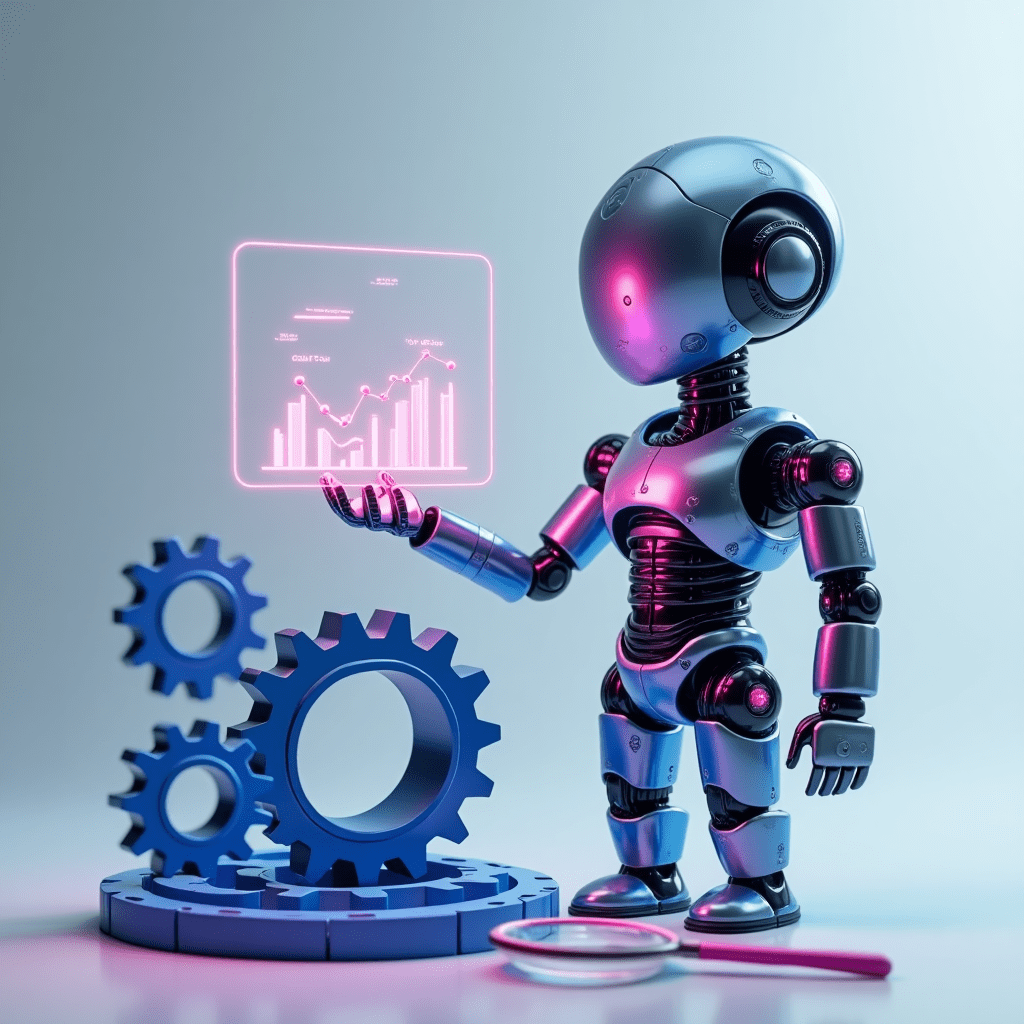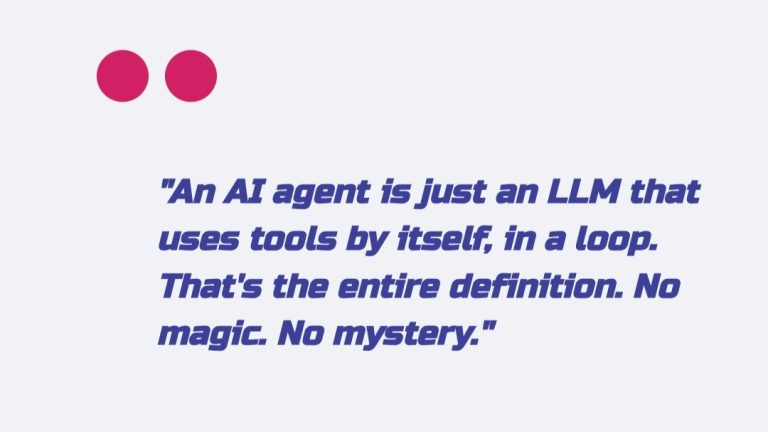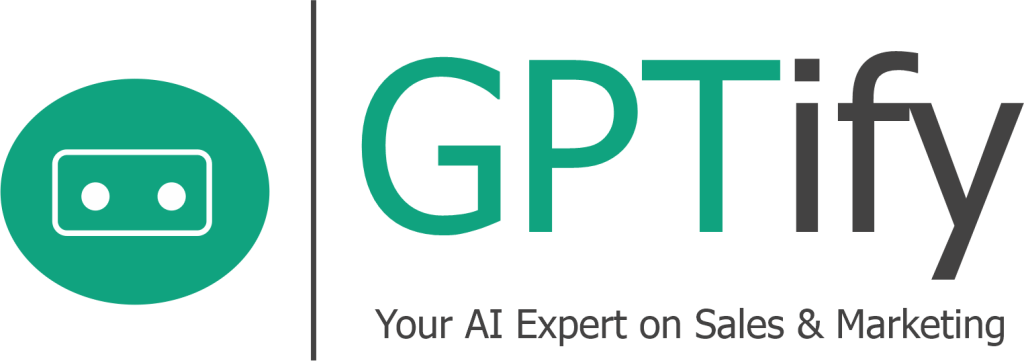As AI continues to change the HR landscape, it’s becoming essential for leaders to understand and adopt its key features and uses. Many HR leaders feel a strong need to move quickly with AI to stay competitive. According to Gartner, 38% of HR leaders have already started exploring or using AI to make their processes more efficient.
In fact, 76% of HR leaders believe that if their organizations don’t adopt AI, including generative AI, within the next 12 to 24 months, they will fall behind others in terms of success. By embracing AI, HR and executive leaders can create a more efficient, effective, and employee-focused HR function, ensuring their organizations are ready for the future.
The Benefits of AI in HR
The integration of AI into HR processes offers numerous benefits that extend beyond mere automation. Here are some of the key advantages:
- Increased Efficiency: AI reduces the time spent on repetitive and administrative tasks, allowing HR professionals to focus on strategic initiatives that add more value to the organization.
- Improved Decision-Making: AI provides data-driven insights that enable HR teams to make better decisions regarding recruitment, talent management, and workforce planning.
- Enhanced Employee Experience: By personalizing interactions and services, AI can improve employee satisfaction and engagement, leading to higher retention rates.
- Cost Savings: Automation of routine tasks and better workforce planning can lead to significant cost savings, as demonstrated by companies like Walmart and Amazon.
- Scalability: AI solutions can easily scale to accommodate the needs of large organizations, such as Unilever, which processes millions of job applications annually.
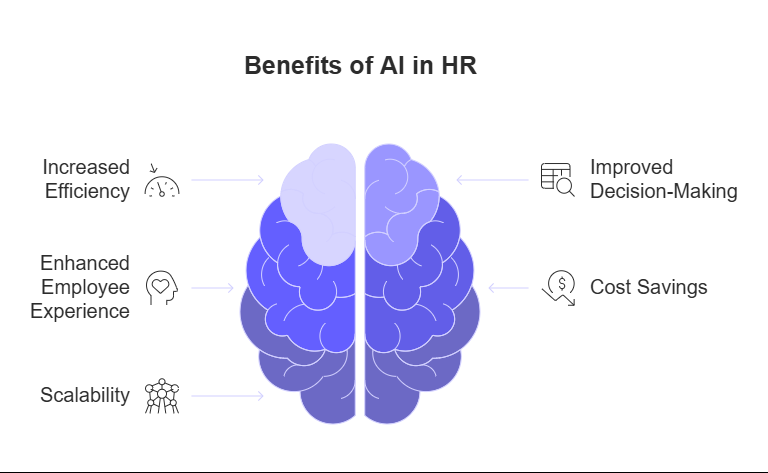
How AI is Revolutionizing HR Today
AI has transformed from a buzzword to an essential component of modern HR operations. The market reflects this shift dramatically. According to industry research, AI in HR is projected to grow from USD 5.9 billion in 2023 to USD 26.5 billion by 2033—a 16.2% annual growth rate. In fact, this rapid expansion stems from fundamental changes in how these systems operate within HR contexts.
Modern HR departments leverage AI that goes well beyond basic automation. These systems now incorporate sophisticated reflex AI agent characteristics that respond instantly to triggers like application submissions or employee questions. Unlike earlier systems, these agents combine pattern recognition with contextual understanding. They deliver responses that feel remarkably human while operating at machine speed.
The accessibility revolution represents perhaps the most significant shift in this space. Previously, implementing AI required specialized data science teams and substantial technical resources. Now, no-code platforms enable HR professionals to build and manage AI solutions without writing code. This democratization puts powerful technology directly in the hands of those who understand HR challenges best.
Just consider how Unilever transformed their recruitment process using AI in HR technology. They reduced their time-to-hire from six months to just eight weeks. Their success exemplifies what happens when HR teams can directly shape AI implementation. They no longer wait for IT departments to translate their needs into technical requirements.
10 Use Cases of AI in HR with real-world case studies
Here are the ten use cases where AI is making a significant impact in HR, with real-world case studies illustrating how leading companies are leveraging this technology to drive efficiency and innovation.
AI-Powered Recruitment and Talent Acquisition
AI-driven recruitment tools are transforming the talent acquisition process by automating repetitive tasks and enhancing decision-making. According to a Gartner survey, 38% of HR leaders are either piloting, planning to implement, or have already implemented AI in their recruitment processes.
Case Study: Unilever
Unilever recruits more than 30,000 people annually and processes around 1.8 million job applications globally. To manage this immense volume, Unilever partnered with Pymetrics to develop an AI-driven recruitment platform. Candidates are first assessed through a series of gamified tests that evaluate their aptitude, logic, and risk tolerance. These assessments are powered by machine learning algorithms that match candidates’ profiles with those of successful employees in similar roles.
The second stage involves an AI-analyzed video interview. Here, machine learning algorithms assess candidates based on their responses, body language, and speech patterns. This AI-driven process has allowed Unilever to reduce the time spent on interviews and candidate assessments by 70,000 person-hours annually. The system also provides feedback to all applicants, ensuring a transparent and fair process, and has significantly increased diversity in hiring by eliminating unconscious bias from the early stages of recruitment.
How Cubeo AI Can Help:
Create a Recruitment AI Agent with Cubeo AI to:
- Screen resumes for ideal candidates.
- Automate interview scheduling.
- Answer candidate FAQs via chatbot.
Employee Onboarding and Training
AI can streamline the onboarding process by providing personalized training programs and automating administrative tasks. This not only enhances the new hire experience but also frees up HR professionals to focus on more strategic tasks.
Case Study: IBM
IBM has deployed AI-powered chatbots to guide new employees through the onboarding process. These chatbots provide answers to common questions, assist with paperwork, and deliver personalized training modules. As a result, IBM has seen a 60% reduction in onboarding time, allowing new hires to become productive members of the team more quickly.
How Cubeo AI Can Help:
- Build an Onboarding AI Agent to guide new hires through documentation and provide training resources.
- Automate responses to FAQs, freeing HR teams for strategic tasks.
Performance Management and Feedback Systems
AI is redefining performance management by providing continuous, data-driven insights into employee performance. This allows for real-time feedback and more effective performance reviews, helping to foster a culture of continuous improvement.
Case Study: General Electric (GE)
General Electric (GE) utilizes AI to analyze employee performance data and provide personalized feedback. This has led to a 10% increase in employee productivity, as employees receive timely, relevant feedback that helps them improve continuously.
Employee Engagement and Retention
Employee engagement is a key driver of productivity and retention. AI tools can analyze employee sentiment and engagement levels, helping HR professionals identify and address issues proactively.
Case Study: Microsoft
Microsoft employs AI to analyze employee feedback and engagement data. By using AI-driven insights, Microsoft has been able to implement targeted interventions that have improved overall employee satisfaction by 15%. These efforts have significantly contributed to higher retention rates and a more engaged workforce.
How Cubeo AI Can Help:
- Create an Engagement AI Assistant to collect and analyze employee feedback.
- Provide insights for targeted interventions to improve morale.
Learning and Development
AI-driven learning platforms can personalize training programs based on individual employee needs and learning styles, enhancing the effectiveness of learning and development initiatives.
Case Study: Accenture
Accenture’s AI-powered learning platform, Accenture LearnVantage, recommends personalized training programs for employees based on their current skill levels and career aspirations. This approach has led to a 30% increase in employee skill levels, making the workforce more adaptable and prepared for future challenges.
How Cubeo AI Can Help:
- Build a Learning AI Agent to recommend courses and track progress.
- Automate skill-gap analysis to prioritize learning initiatives.
Diversity and Inclusion Initiatives
Diversity and inclusion (D&I) are critical components of a modern workplace, and AI can play a pivotal role in advancing these initiatives. AI tools can analyze hiring practices, employee demographics, and promotion patterns to identify and address biases.
Case Study: PepsiCo
PepsiCo uses AI to analyze job descriptions and remove biased language, which has resulted in a 25% increase in the diversity of their candidate pool. By ensuring that job postings are more inclusive, PepsiCo has been able to attract a broader range of candidates, fostering a more diverse and inclusive workplace.
Workforce Planning and Analytics
AI-powered workforce analytics can provide HR with deep insights into employee behavior, performance trends, and overall organizational health, enabling more informed decision-making.
Case Study: Walmart
Walmart uses AI to forecast staffing needs and optimize scheduling, which has led to a 15% reduction in labor costs. By accurately predicting when and where employees are needed, Walmart has been able to reduce unnecessary labor expenses while ensuring that customer service levels remain high.
Employee Wellness Programs
Employee wellness is directly linked to productivity and job satisfaction. AI-driven wellness programs can provide personalized recommendations to help employees manage their health and well-being.
Case Study: Johnson & Johnson
Johnson & Johnson uses AI to monitor employee health data and provide personalized wellness recommendations. This approach has resulted in a 20% decrease in absenteeism, as employees are better able to manage their health and stay productive.
AI-Powered Compensation and Benefits Management
Compensation and benefits are key factors in attracting and retaining talent. AI can optimize compensation strategies by analyzing market data, employee performance, and company budget constraints.
Case Study: Google
Google utilizes AI to analyze compensation data and ensure pay equity across the organization. This has led to a 10% increase in employee satisfaction, as employees feel confident that they are being compensated fairly.
How Cubeo AI Can Help:
- Build a Compensation AI Assistant to analyze market trends and recommend pay adjustments.
- Ensure transparency and equity in salary distribution.
Employee Exit Management
AI can streamline the exit process by automating administrative tasks and analyzing exit interview data to identify trends, helping companies reduce turnover.
Case Study: Amazon
Amazon uses AI to analyze exit interview data and identify common reasons for employee departures. This analysis has enabled Amazon to implement targeted retention strategies, resulting in a 20% reduction in turnover rates.
Why 76% of HR Leaders Fear Falling Behind
The urgency surrounding AI adoption continues to accelerate at an incredible pace. Gartner’s research on AI adoption shows the number of HR leaders conducting AI pilots doubled between June 2023 and January 2024. Additionally, 38% of HR leaders have already explored AI solutions specifically for process efficiency.
Organizations delaying AI implementation face measurable disadvantages in today’s competitive landscape. Teams without AI assistance spend roughly 40% of their time on administrative tasks. These could be automated with the right tools. This represents thousands of hours annually diverted from strategic initiatives like talent development.
Ethical Considerations and Security in AI-Powered HR
While the benefits of AI in HR are substantial, they come with important ethical and security considerations that organizations must address:
- Bias and Fairness: AI systems can inadvertently perpetuate existing biases in recruitment, promotion, and compensation. It is crucial for organizations to ensure that AI algorithms are designed and regularly audited to prevent discrimination and to promote diversity and inclusion.
- Transparency: AI decisions, especially those affecting employees’ careers, must be transparent. Employees should understand how AI tools are used in HR processes and have the opportunity to contest decisions made by AI.
- Data Privacy: AI systems in HR often handle sensitive employee data. Organizations must implement robust data protection measures to ensure compliance with privacy regulations and protect employee information from breaches.
- Accountability: Even though AI tools can perform tasks autonomously, the responsibility for their outcomes lies with the human HR professionals who implement and oversee these systems. Clear accountability structures must be in place to manage any ethical issues that arise.
- Job Displacement: While AI increases efficiency, it may also lead to job displacement for roles that are heavily administrative. Organizations should consider reskilling and upskilling programs to help employees transition into new roles that require more strategic thinking and creativity.
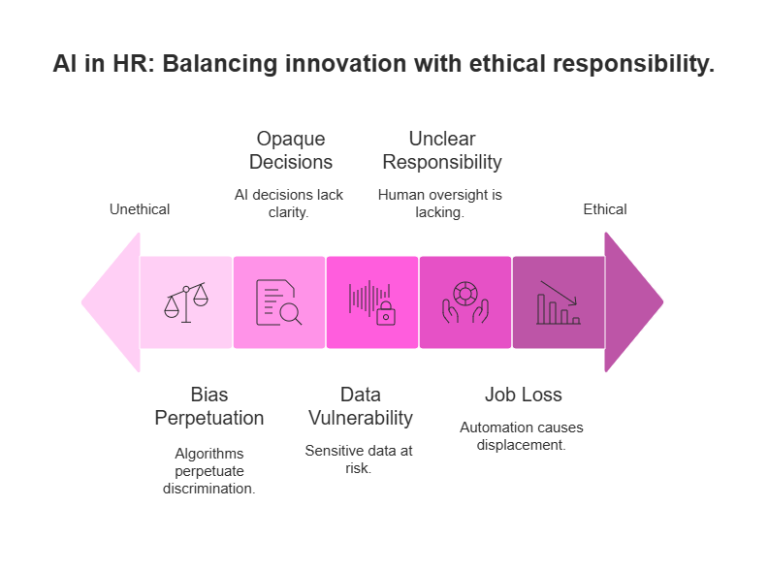
How Cubeo AI Can Enhance Your HR Operations
Cubeo AI is a no-code platform that allows HR, Sales and Marketing teams to create customized AI Agents and Assistants tailored to their specific needs. You can build AI Agents in less than a minute by simply typing in what you need without requiring programming skills.
Here’s how Cubeo AI can transform your HR functions:
Streamlined Recruitment: Cubeo AI enables the creation of AI-powered chatbots to handle candidate inquiries, screen resumes, and schedule interviews. This reduces the time spent on repetitive tasks and helps HR teams focus on selecting the best candidates efficiently.
Efficient Onboarding: With Cubeo AI, you can build AI Agents that guide new hires through the onboarding process, answering common questions and providing personalized training. This ensures new employees settle in quickly and effectively.
Performance Management: Cubeo AI can assist in developing AI tools that monitor employee performance, collect feedback, and provide actionable insights. This supports accurate and timely performance evaluations.
Employee Engagement: Cubeo AI empowers HR departments to create AI Assistants that track employee sentiment and engagement. By providing real-time insights, these AI tools help HR address issues before they escalate.
AI Agents for Specialized Tasks: Cubeo AI offers pre-built AI Agents that are ready to handle specific HR tasks such as candidate screening or employee surveys, providing immediate productivity boosts.
Seamless Integration: Cubeo AI integrates with your existing HR tools and platforms, ensuring a smooth workflow across all your HR operations.
Customizable and Scalable: You can train Cubeo AI Assistants on your specific data, and combine multiple AI Assistants into an AI Team to handle a variety of tasks collaboratively. This flexibility makes Cubeo AI a cost-effective solution that grows with your business needs.
Whether you’re a small business or a large enterprise, Cubeo AI offers the tools you need to enhance productivity in your HR department.
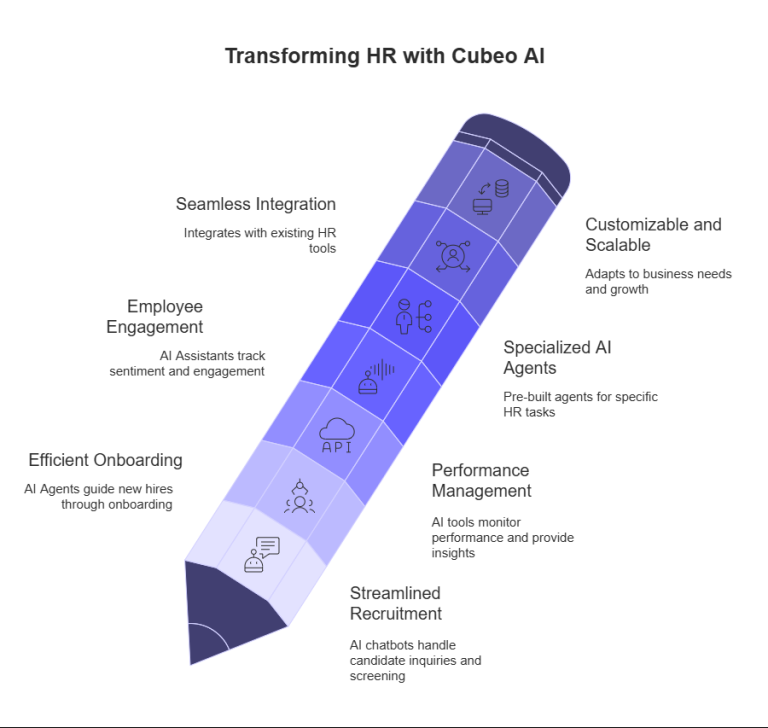
FAQ
What are the most successful AI use cases in HR today?
AI-powered candidate screening, predicting employee turnover, and automating onboarding processes are successful AI use cases. These applications improve operational efficiency and drive strategic decision-making. AI enhances decision-making through data-driven insights. AI also helps HR staff make more informed decisions or streamline work.
How can small HR teams implement AI without technical expertise?
Small HR teams can begin with simple AI tools. Educating staff is also important. Gradually integrate AI for tasks, such as resume screening. Collaboration and continuous learning are key for AI adoption.
What ROI can companies expect from AI in HR implementations?
AI in HR can significantly boost ROI. This can be achieved through improved recruitment efficiency, enhanced employee engagement, and better workforce planning. Studies show substantial cost savings and productivity gains from AI-driven HR solutions. Improved employee satisfaction and retention rates are ways to measure ROI.
What are the key challenges when implementing AI in HR operations?
Data privacy and employee resistance are key challenges. A lack of trust in AI tools is also a challenge. AI requires human oversight and regulation. Reskilling is necessary for adapting to new technologies.
Sign up here to start exploring our platform, and schedule an onboarding call with one of our founders who can provide tailored advice for your specific needs. We’re excited to see what your team can achieve with Cubeo AI!
